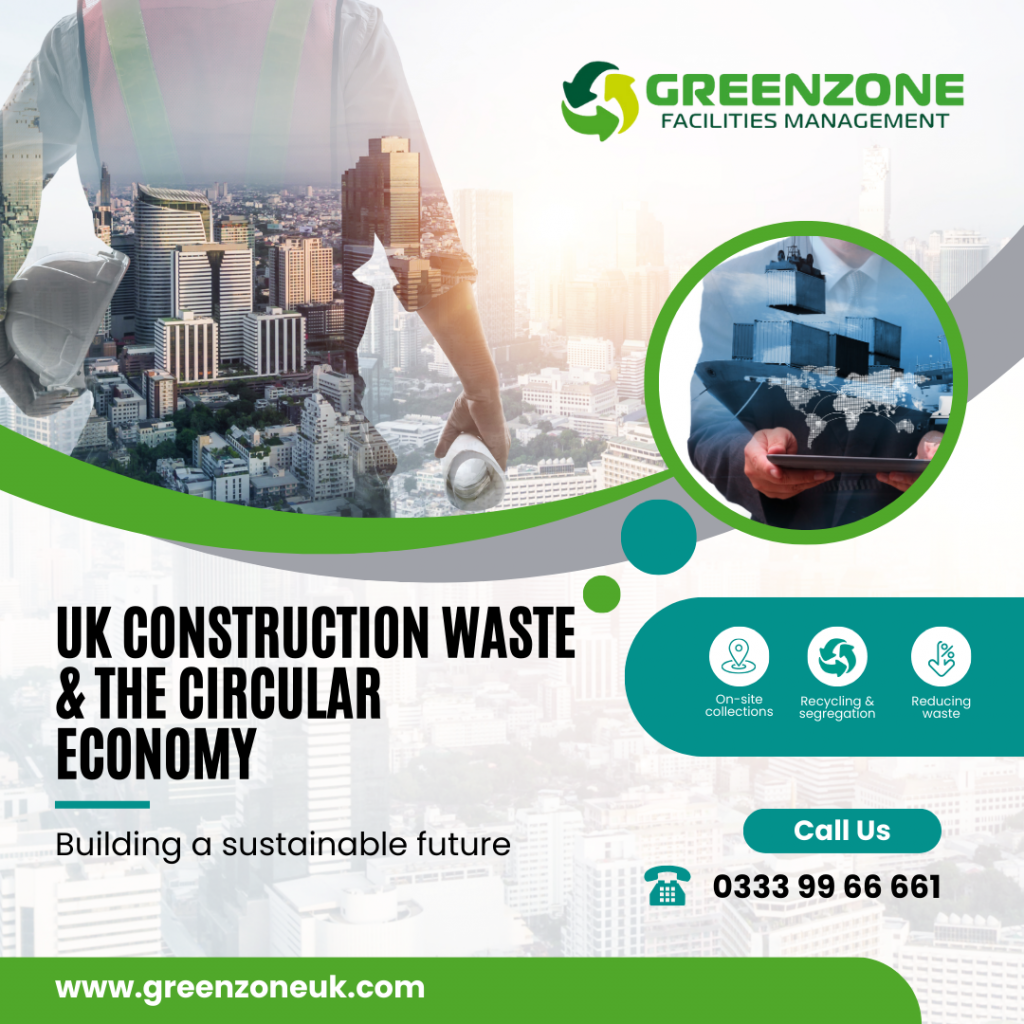Building a Sustainable Future: Construction Waste and the Circular Economy
At the heart of the UK’s thriving construction industry, changes are happening that are shaping the way we think about waste, sustainability, and the way we build our environment.
Construction waste and the circular economy is evolving due to innovation, environmental commitments, and the unwavering dedication to build a more sustainable future for all. The construction industry’s traditional ways could be characterised by the “Take, Make, Dispose” approach, which were unsustainable and as a nation we are now grappling with the after effects of this practice, which has not only strained the environment but also threatened the availability of finite resources.
Sending waste directly to landfill is no longer a solution and it’s very clear that change was imperative. The goals of sustainable construction are to reduce the industry’s impact on the environment.
Sustainable construction methods include:
- using renewable and recyclable materials
- reducing the embodied energy in building material
- reducing on-site waste
- protecting the natural habitats during and after the construction phase
- adopting circular economy practices
The UK Government are now supporting a circular economy within the construction sector and central to their strategy was a vision of minimising waste, extending the life of construction materials, and reducing carbon emissions. A key policy; the Construction 2025 Strategy has set ambitious targets to reduce waste generation and energy consumption, while promoting innovation in sustainable construction practices.
Read more: Construction 2025: strategy – GOV.UK
Professionals from within the construction industry including architects, engineers, contractors, and suppliers have redefined their building plans, materials & processes with the emergence of sustainable building practices, such as modular construction, which enabled materials to be reused and repurposed which significantly reduces waste. Another significant transformation was the development of sustainable building materials like recycled steel, reclaimed wood, and energy-efficient insulation materials which have become the new norm, reducing the overall environmental footprint of construction projects.
Greenzone offer comprehensive and bespoke waste recovery solutions for construction sites, ensure minimal waste ends up in landfill. Our recovery services focuses on sorting, recycling, and repurposing materials to promote a circular economy. On-Site collection and proper segregation ensures that materials are correctly sorted for recycling, reuse, or responsible and compliant disposal which minimises the environmental footprint of your project. We prioritise the recycling and repurposing of materials such as concrete, wood, steel, and plastics, promoting the use of sustainable and recycled materials in future construction projects.
Greenzone Total Waste Management services not only benefit the environment, they are a cost-effective way to operate your waste management, reduce waste recovery fees and operational costs. Full compliance with waste regulations and detailed reporting on waste recovery and recycling rates is available through our Digital portal Customerzone. We know that every construction project is unique and we tailor our services to meet the specific waste requirements of your site.
Do you want to make your construction project more sustainable and eco-friendly? Get in touch with Greenzone today to discuss how our waste recovery services can benefit your site.
Together, we can build a more sustainable future.


